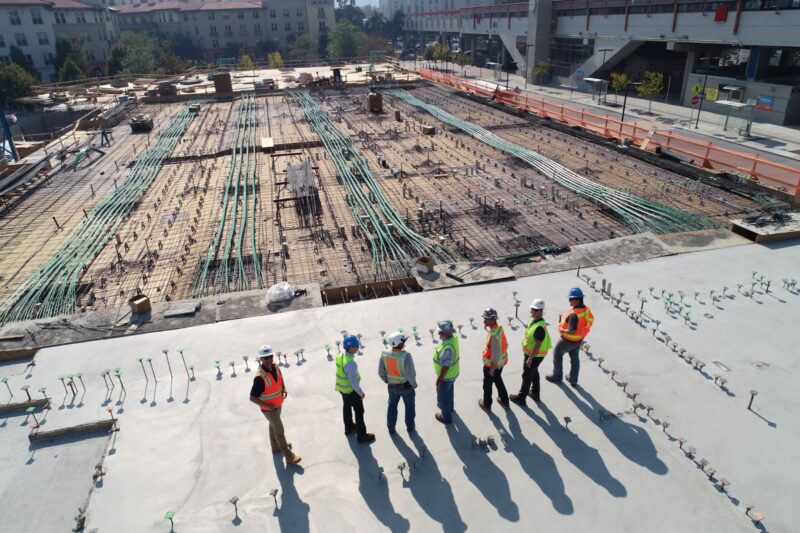Running a construction company is no easy feat; it requires a combination of strategic planning, effective leadership, and a keen understanding of the industry. In an ever-evolving market, success hinges on the ability to navigate challenges, capitalize on opportunities, and foster a culture of excellence. In this article, we will explore some crucial aspects that can contribute to achieving success in the competitive realm of construction management.
Strategic Project Management
One of the cornerstones of a successful construction company lies in effective project management. From inception to completion, a well-defined project management strategy is essential for delivering projects on time and within budget. To achieve this, construction companies must invest in robust project management software that facilitates seamless communication, task tracking, and resource allocation. Embracing the principles of Lean Construction, a methodology aimed at maximizing efficiency and minimizing waste can significantly enhance project outcomes. Furthermore, fostering collaboration among project teams and stakeholders ensures that everyone is aligned with the project’s goals and milestones.
Success in construction project management also involves proactive risk management. Anticipating potential challenges, such as weather-related delays, supply chain disruptions, or regulatory hurdles, allows for contingency planning and mitigation strategies. By staying ahead of potential issues, a construction company can not only protect its bottom line but also build a reputation for reliability and resilience in the face of adversity.
Technological Advancements
In the digital age, staying competitive in the construction industry requires embracing technological advancements. Construction Industry 4.0, marked by the integration of digital technologies, automation, and data analytics, offers transformative opportunities. Implementing Building Information Modeling (BIM) allows for a comprehensive and collaborative approach to project planning and design. It enhances communication, reduces errors, and improves overall project efficiency.
Moreover, the use of drones and advanced surveying technologies can streamline site inspections and data collection, providing real-time insights into project progress. Smart construction equipment, equipped with sensors and IoT connectivity, not only improves safety on the site but also facilitates predictive maintenance, reducing downtime and increasing operational efficiency. Embracing these technological advancements not only positions a construction company as an industry leader but also enhances overall project quality and client satisfaction.
Cultivating a Safety-First Culture
Beyond the technical aspects, the success of a construction company is intrinsically tied to its workforce. Cultivating a safety-first culture is paramount, not only for compliance but also for employee well-being and project success. Investing in comprehensive safety training programs and providing the latest personal protective equipment (PPE) demonstrates a commitment to the health and safety of the workforce. Regular safety meetings and drills further reinforce the importance of adherence to safety protocols.
Furthermore, recognizing and rewarding safe practices fosters a positive and responsible work environment. Employees who feel valued and supported are more likely to take ownership of their roles and contribute to the overall success of the company. In the construction industry, where physical risks are inherent, a safety-first culture not only mitigates accidents and injuries but also contributes to a positive public image, attracting clients and skilled professionals alike.
Business Email Hosting
In the construction industry, effective communication is a linchpin for success, both internally and externally. One often overlooked but crucial aspect is establishing a professional and consistent means of communication. Investing in business email hosting services to acquire a personalized email address with your domain name can significantly elevate your company’s brand image. A branded email address not only conveys credibility but also enhances professionalism in interactions with clients, subcontractors, and stakeholders. This seemingly small detail contributes to a cohesive and polished brand identity, reinforcing the impression that your construction company is attentive to every aspect of its operations, from project management to communication strategies. By integrating business email hosting into your company’s toolkit, you not only streamline communication but also contribute to the overall success and professionalism of your construction business.
Sustainable Practices
In the contemporary construction landscape, incorporating sustainable practices is not just an ethical choice but a strategic one. Embracing eco-friendly construction materials, energy-efficient technologies, and sustainable construction processes not only aligns your company with global environmental goals but also positions you as a forward-thinking industry player. Clients and stakeholders increasingly prioritize sustainability, and by integrating green practices into your projects, you not only contribute to a healthier planet but also tap into a growing market demand for environmentally conscious construction solutions.
Client Relationship Management
Beyond the completion of individual projects, the success of a construction company is deeply intertwined with client satisfaction and relationship management. Nurturing long-term partnerships with clients involves more than delivering on time and within budget. It requires a proactive approach to understanding client needs, effective communication, and a commitment to exceeding expectations. Implementing a robust client relationship management (CRM) system can streamline communication, track client preferences, and provide insights for future projects. Building trust and fostering positive relationships with clients not only ensures repeat business but also opens doors to valuable referrals and positive word-of-mouth in the industry.

Staying Ahead in a Dynamic Industry
The construction industry is in a constant state of evolution, with new technologies, regulations, and market trends emerging regularly. Success in this dynamic environment requires a commitment to continuous learning and adaptation. Encourage your team to stay informed about industry developments, attend relevant workshops and conferences, and embrace a culture of innovation. By staying ahead of the curve, your construction company can proactively adapt to changes, identify new opportunities, and maintain a competitive edge. Whether it’s integrating the latest construction management software or staying compliant with evolving safety standards, a commitment to continuous learning ensures that your company is not just building structures but also building a future-ready business.
In the challenging terrain of the construction industry, success is a multifaceted endeavor that involves strategic project management, technological integration, safety-first cultures, professional communication, sustainable practices, client relationship management, and continuous learning. Each facet contributes to the overall resilience and excellence of a construction company. By embracing these principles, companies can not only navigate the complexities of the industry but also set themselves on a path to sustainable growth and prominence. Whether it’s implementing cutting-edge technologies, prioritizing safety, or fostering client relationships, the key lies in a holistic and adaptive approach. In constructing your company’s success, remember that the foundation is as crucial as the finished structure. Build wisely, adapt continuously, and watch your construction enterprise thrive in the ever-changing landscape of the industry.












